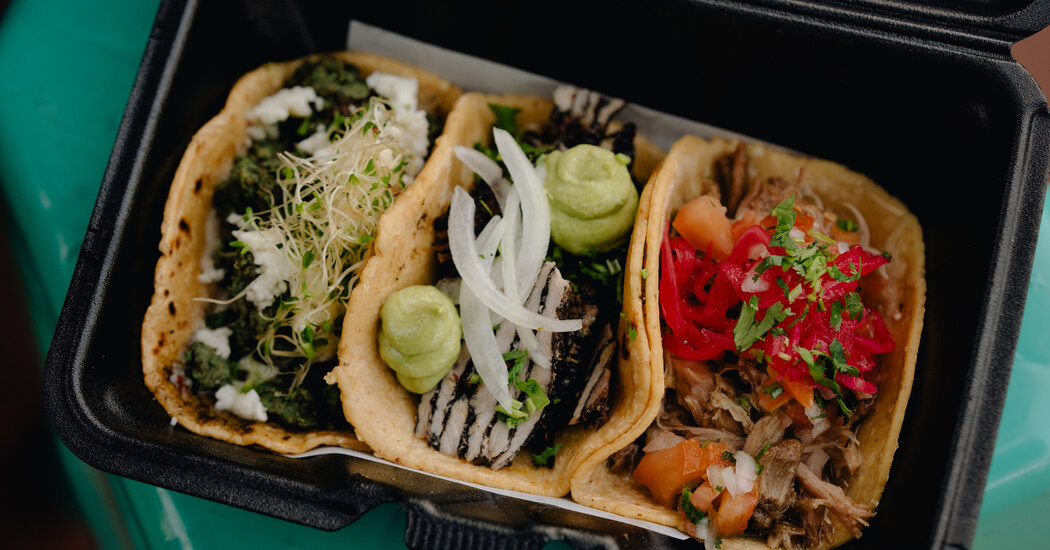
The question of what is and what is not technically a sandwich grips us tightly.
The question won’t die. But one day I will, and I can imagine that the last thing I hear will be some guy explaining to me why a hot dog is a sandwich, or why a hamburger is a sandwich, or why my soul leaving my body as I breathe my last breath is also a sandwich.
On Monday, in Fort Wayne, Ind., a judge ruled that tacos are “Mexican-style sandwiches,” and while a local zoning issue might not usually make national headlines, it was impossible to resist this one. It took the absurd sandwich question seriously in a civil court case, then appeared to land on the wrong answer.
I type these words from Los Angeles, where the question itself is trifling. There are many kinds of well-established, Mexican-style sandwiches here — cemitas, pambazos, dozens of regional styles of tortas — and the taco is simply not one of them. The taco is its own glorious archetype, its own indisputable and formidable department of joy.
But getting caught up in this argument is a bit of a distraction. The ruling wasn’t made to settle a manufactured debate, boost brand engagement or bump someone’s “is-it-a-sandwich” T-shirt sales on Etsy. It was made for the more boring, messy business of real life. And here, I have to admit, it starts to make sense.
Martin Quintana, a restaurateur and developer in Fort Wayne, tried to open the Famous Taco in a local strip mall, but in 2019, while seeking out zoning approvals from the local plan commission, he agreed to a written commitment with a nearby neighborhood association that any restaurant in this shopping plaza would sell only “made-to-order or subway style sandwiches.”
The provision was meant to protect the strip mall against certain fast food chains. If Mr. Quintana wanted to move forward with his plan, he would have to find a way to either amend the agreement or make the case in civil court that tacos are sandwiches. It wasn’t an ideal argument, but it had to be made.


